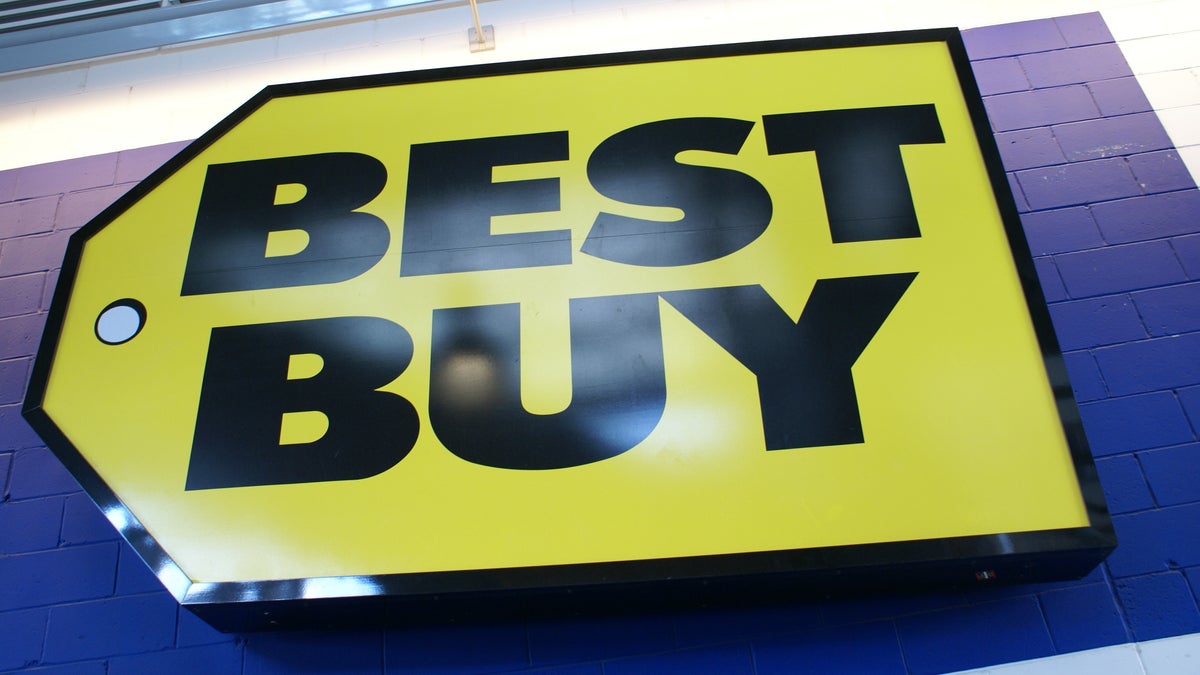Best Buy's silver lining: Its mobile business
The big-box retailer's saving grace has been its still humming mobile-devices business. But is it enough to save the company?

At least Best Buys still has its cell phone business.
On the heels of a disappointing quarterly report and today's resignation of CEO Brian Dunn, it's easy to think the entire company is doomed to follow in the steps of fallen electronic chains Circuit City and CompUSA. Yet its mobile devices business -- cell phones in particular-- has been impressively resilient during its recent troubles.
The cell phone business, which Best Buy has spent time and money building up, represents one of the rare bright spots in the company. Over time, Best Buy will likely be more heavily weighted towards the mobile business. Unfortunately, it may not be enough to save the entire company and offset the big declines in its other businesses.
When Best Buy reported its fiscal fourth-quarter results last month, most of its segments saw revenue declines, particularly a steep one in the entertainment category, as DVDs and Blu-ray discs took a big hit. But the computing and mobile phones segment posted growth of 7.6 percent in same-store sales over the previous month. By itself, the mobile phones business likely would have grown even faster.
That's important because that unit makes up nearly 40 percent of the company's total revenue for the month. The appliances business, which was the only other segment to show growth, only represents 5 percent of total revenue.
For a company -- and an industry -- that has seen little go right, the cell phone business continues to hum along. While a vast majority of consumers still shop for phones directly with the carriers, Best Buy has been able to carve out a healthy chunk of business for itself. With the smartphone world rapidly evolving and new devices coming out all the time, Best Buy has created a role for itself as an impartial consultant for consumers.
Best Buy has spent the past few years building up the mobile phone business, both by creating specifically designated areas within its stores, as well as opening mobile-centric stores. Employees in this segment receive special training to better answer customer questions. Over the past few years, the company has negotiated for some exclusive products, including the HTC Flyer tablet.
While Best Buy's ads have often run during the Super Bowl, this year marked the first time the company specifically focused on smartphones with its spot.
"We want to use the Super Bowl as an opportunity to awaken recognition of Best Buy as a mobile source," said Scott Moore, vice president of marketing for Best Buy's connectivity business group, ahead of the game.
With nearly half of all consumers still using a basic cell phone, Best Buy, like all of the carriers, sees the opportunity in getting people to upgrade.
Best Buy gets paid a bounty by the carrier for each customer it signs up. But the incentive structure is flat, so salespeople aren't biased toward one phone or the other. That's the store's biggest appeal: it isn't trying to push one product over another, and offers virtually all of the products from each of the major carriers. It will also often bundle in additional discounts or freebies, such as a Best Buy gift card or free video game.
Even as it closes big-box stores, Best Buy plans to open 100 standalone Best Buy Mobile stores. That could very likely be the start of a broader migration toward a more mobile-centric offering.
Still, the continued interest in smartphones may not be enough to get Best Buy through its recent struggles. The closing of 50 big-box stores this year fiscal year portends the same kind of troubles CompUSA and Circuit City faced before they declared bankruptcy and disappeared.
Meanwhile, Best Buy's sales declines in its other segments continue, with languishing demand for consumer electronic products. The 21 percent month-over-month decline in the entertainment category is particularly stark.
More importantly, Best Buy is losing the e-commerce battle to the likes of Amazon, which has grown into the de-facto place for consumers to buy their goods.
But fortunately for Best Buy, handsets remain a place where consumers want advice and touch and feel and actual device before making a purchasing decision, something they can't do with a Web site.
So how Best Buy looks in a few years -- or whether it survives -- remains an uncertainty. But it could very well end up as a mobile device-centric chain, rather than the one-stop shop for all things electronic.

